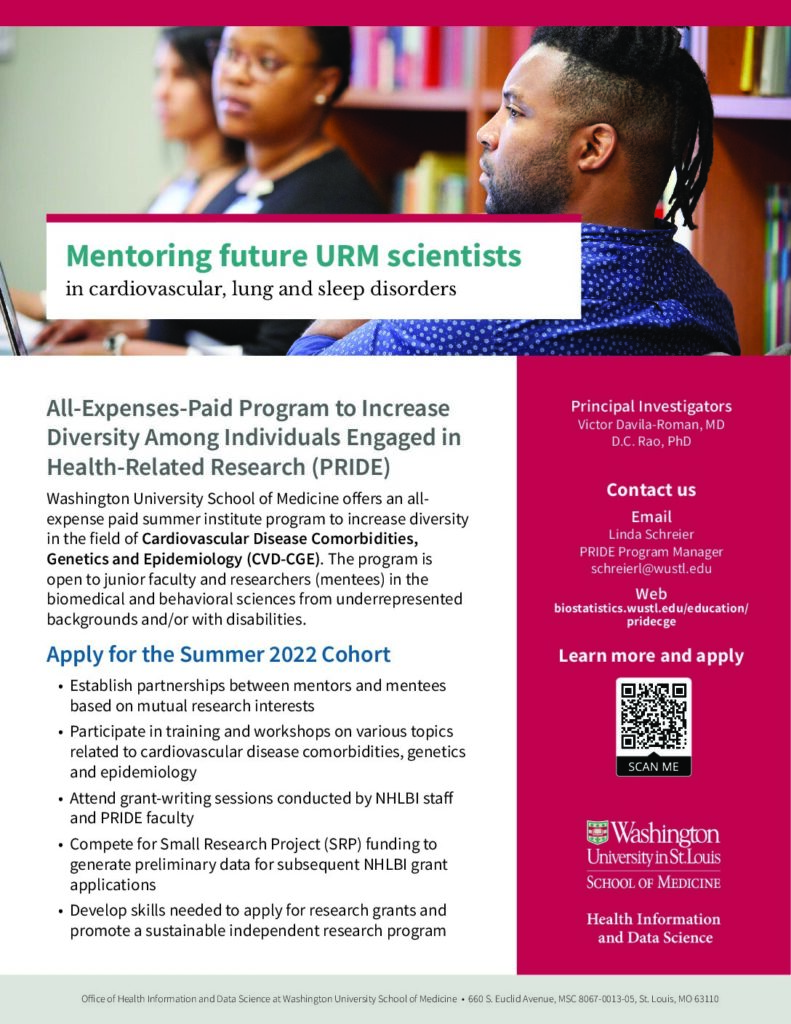Cardiovascular Disease Comorbidities, Genetics and Epidemiology
(July 11-27, 2022)
The NHLBI-funded “Programs to Increase Diversity Among Individuals Engaged in Health-Related Research” support junior faculty underrepresented in biomedical research.
Washington University School of Medicine, St. Louis, Missouri
MPI’s: Victor Davila-Roman, MD and DC Rao, PhD
Co-Director: Lisa de las Fuentes, MD, MS
Program Administrator: Linda Schreier, BS (schreierl@wustl.edu)
Space is limited for the mentored program starting summer 2022. Apply early!
Who: Eligible applicants are junior-level faculty or scientists with a background that is underrepresented in the biomedical or health sciences, and are United States Citizens or Permanent Residents. Research interests should be compatible with those of the National Heart, Lung, and Blood Institute (NHLBI) in the prevention and treatment of heart, lung, blood, and sleep (HLBS) disorders.
What: This all-expense paid program incorporates effective mentored training opportunities to enhance research skills and to promote the scientific and career development of trainees with a research interest in cardiovascular disease comorbidities, genetics and epidemiology.
Trainees will learn effective strategies for preparing, submitting and obtaining external grant funding for research, including extensive tips on best practices.
The program includes:
· A year-long mentored research experience that includes two consecutive 2-week summer sessions and multiple mentor-mentee meetings throughout, beginning July 11, 2022
· Opportunity to apply for Small Research Project (SRP) grants with funding. Applications due 1 month after Summer 1 with project to be completed within 9-12 months of award.
· Group brainstorming sessions with mentors and mentees to review and refine ideas for SRPs and external grant applications
· Mid-year meeting for all participants with their mentors
· Annual meeting with all 9 PRIDE programs and NHLBI (April 2023)
· Opportunity to develop a network of collaborators and resources to conduct research at the interface of genetics, epidemiology, and cardiovascular disease and risk factors
· The core objective is to prepare mentees to pursue independent research in one of the NHLBI mission areas of heart, lung, blood, and sleep disorders through submission of research grants within 2 years of the second summer training session.
Application Deadline: Rolling admissions until all slots are filled. Apply now!
